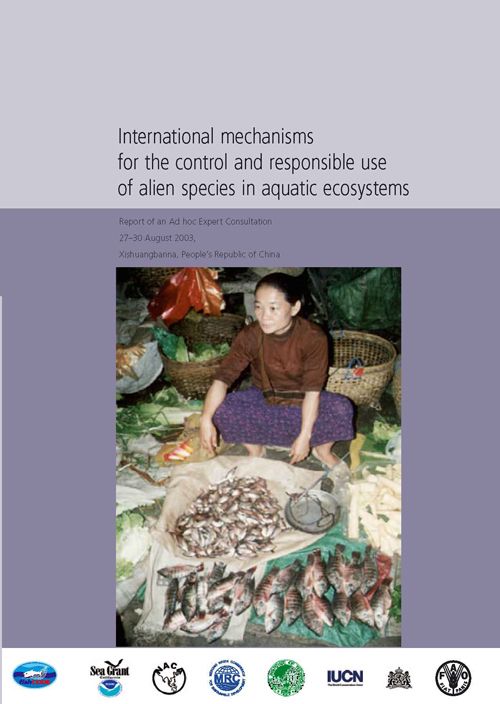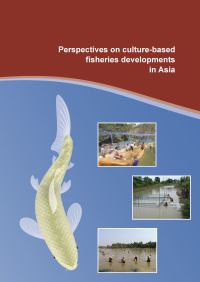International mechanisms for the control and responsible use of alien species in aquatic ecosystems
15 November 2006 | Bartley, D.M., Bhujel, R.C., Funge-Smith, S., Olin, P.G. and Phillips, M.J. (eds.) | 1379 Downloads | .pdf | 11.24 MB | Cambodia, China, Freshwater finfish, Governance and Policy, Health and Biosecurity, Lao PDR, Myanmar, Shrimp, Environment and Sustainability, Thailand, Vietnam
The use of alien species is a proven means to increase production and value from aquatic ecosystems. In the Mekong/Lanchang Basin, alien species such as tilapia (Oreochromis spp.) play an important role in providing cheap and readily available protein to rural and poor sectors. However, alien species are now recognised as one of the most significant threats to aquatic biodiversity.
Members of FAO and signatories to the Convention on Biological Diversity have obligated themselves to manage and control alien species that may adversely impact ecosystems. There are a range of international mechanisms that have been established to assist countries in meeting international obligations and responsibilities. The coverage of these international instruments, the signatory countries and the degree to which they are implemented varies throughout the world. Implementation is often difficult due to lack of awareness at national level of responsibilities under the respective instruments, problems with enforcement, and lack of basic information and capacity to undertake risk assessment. Several steps are necessary for effective use and control of alien species, but one of the most important was identified to be following codes of practice similar to that developed by the International Council for the Exploration of the Sea.
The development and use of indigenous species are options to the use of alien species. However, indigenous species have not received the same amount of attention, research, development and use as many alien species. Regional coordination of policies and practices on alien species is needed for effective national management. National policies need to be in place and the population needs to be aware of issues before countries can implement international mechanisms. Thus, regional coordination and national policy development are necessary actions that should go hand in hand in order to facilitate implementation of broader international agreements.
Copyright, all rights reserved.

